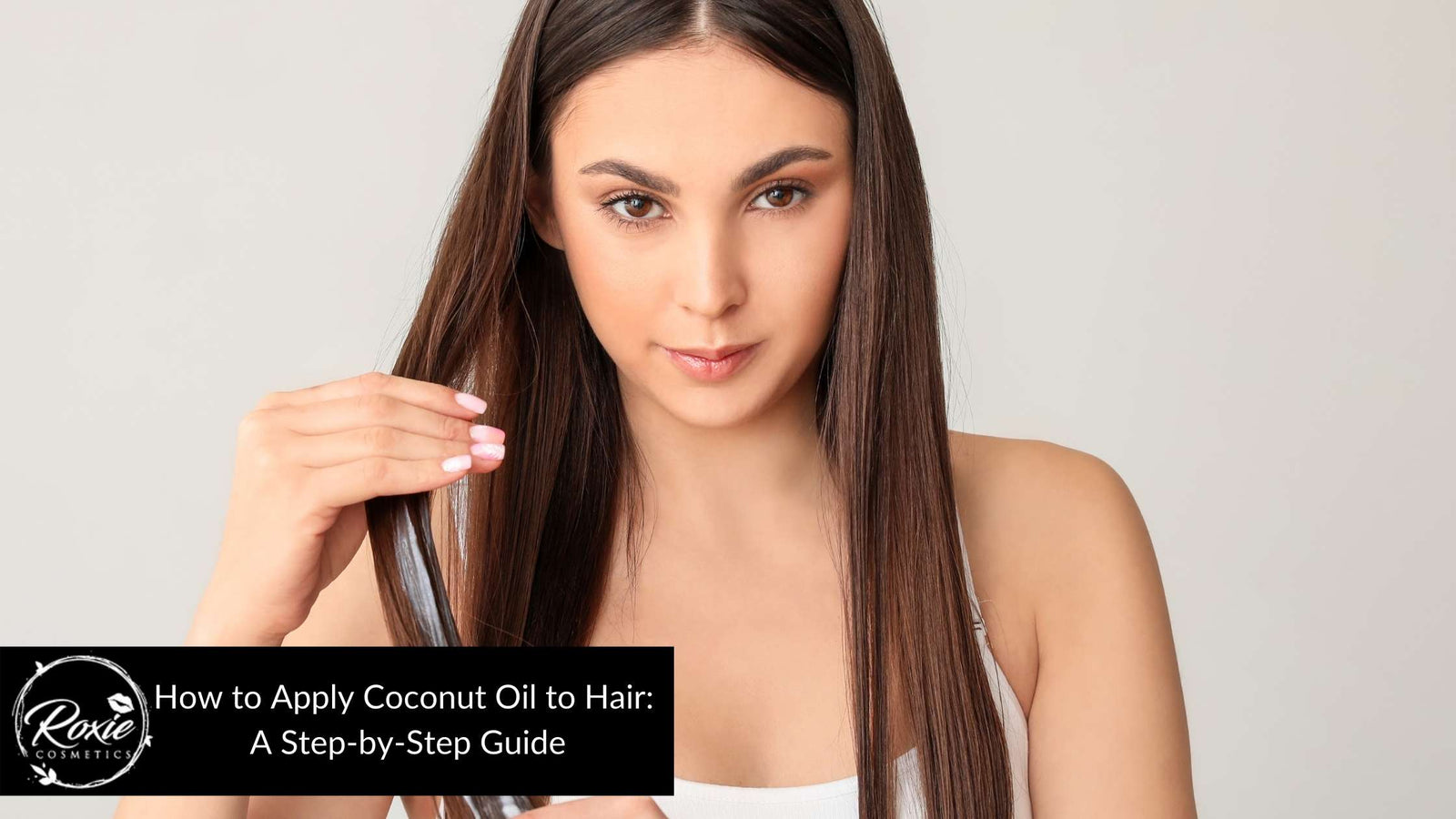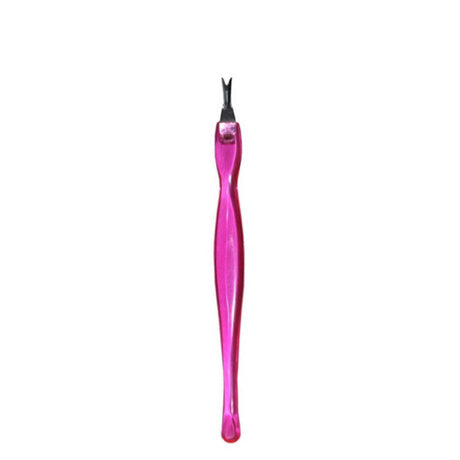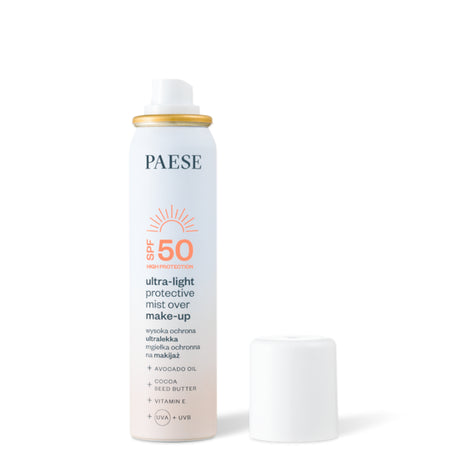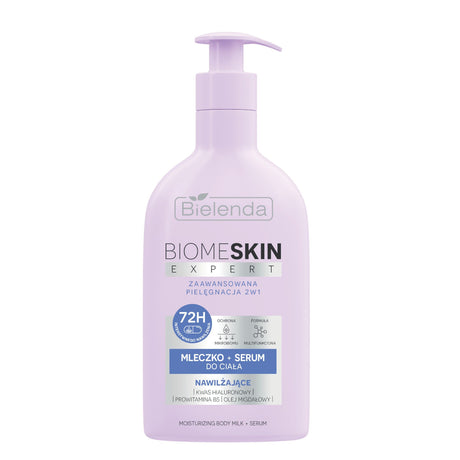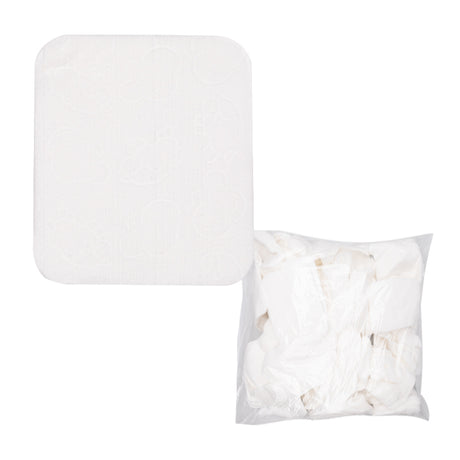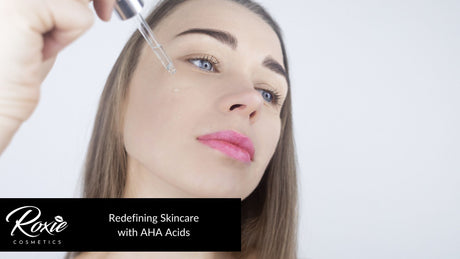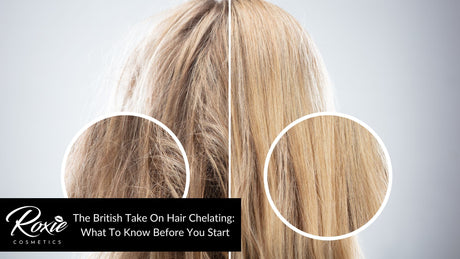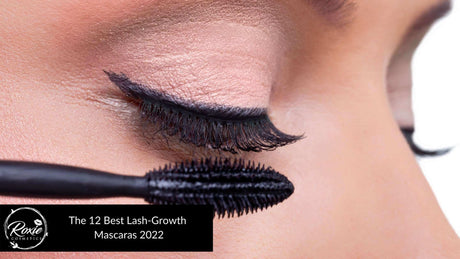Coconut oil is rich in vitamins and fatty acids that can be applied topically to nourish and improve hair. Its natural nutritional content makes it safe and versatile for use, even for the hair and scalp. When extracted, the natural oils of coconut solidify at room temperature for their high concentration of fatty acids. Lauric Acid found in coconut extracts is absorbed and penetrates deep into the scalp. It reduces the loss of protein, which benefits those with damaged hair. The coconut oil content helps reduce any excess sebum production with common hair types that usually prevent the hair scalp from cultivating healthier hair. It addresses common hair issues like dandruff, scalp allergies, and hair damage that collectively lead to hair loss. A study was done by Rituja Saxena and her group of researchers in 2021 that found antifungal and antibacterial properties in coconut oil extracts.
Applying coconut oil to the hair has been a common practice for everyone who wants to reduce and prevent hair damage. Unfined ones are more advisable when choosing the right type of coconut oil. Unrefined coconut oil retains more of its natural components, absence of chemicals, and has a pleasant fragrance of coconut. One can apply coconut oil for different uses, such as a conditioner, hair mask, or pre-wash ointment. This natural ingredient may have many hair benefits but should be gradually incorporated into the hair to ensure safety. Coconut oil can get greasy when applied to the scalp, so proper application and thorough washing are needed to avoid clogged hair follicles.
Listed below are the steps for applying Coconut Oil to the Hair.
- Warm the coconut oil.
- Make a blend
- Use it at night
- Apply lightly
- Don’t clog your scalp
- Shampoo twice
1. Warm the coconut oil.
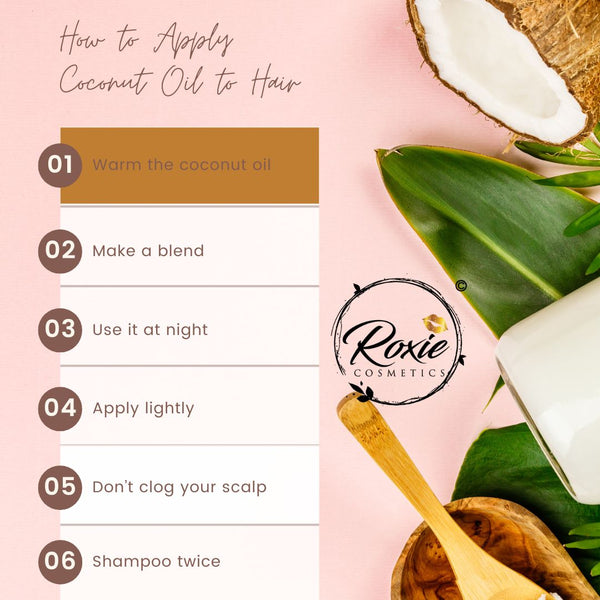
Coconut oil has natural fatty acids that make them appear solid in consistency when bought in a jar. One can quickly melt the solidified coconut oil on a hot pan or through a small bowl, then heated in the microwave. The right amount of heat turns the coconut oil into a liquified solution. Too much heat might destroy the natural components in the oil, decreasing its potency in revitalising damaged hair. Warming up the coconut oil helps eliminate any small lumps and particles that may clog the hair follicles. One typically needs a small amount, around a spoonful, as a start for using coconut oil on the hair.
2. Make a blend
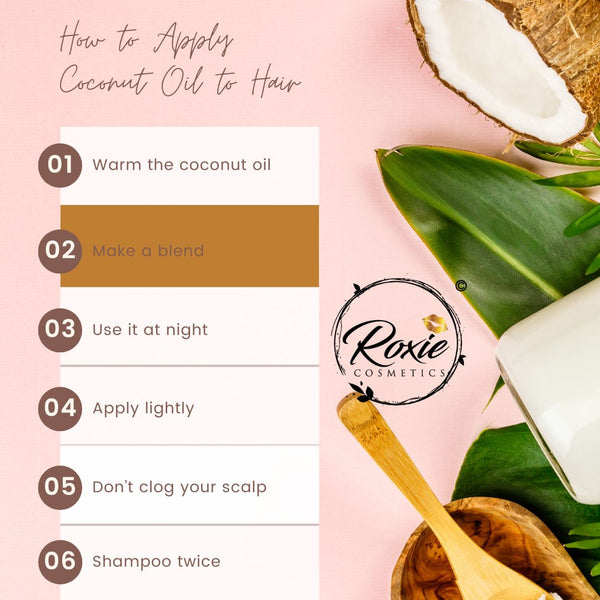
Blend the coconut oil well before application. Make sure that there are no impurities and clumps in the liquified coconut oil. These impurities could do more harm than good, like getting into the scalp pores that may irritate. Coconut oil can be used as a mask or as a conditioning hair oil. Some blend coconut oil with other ingredients, like a raw egg or olive oil, for added protein and good fat content. A few drops of fragrant essential oils induce aromatherapy upon application. Other ingredients that can be safely blended with coconut oil are aloe vera, argan, and avocado oil. Coconut oil, primarily commercially available, is already good as it is to be applied to the hair.
3. Use it at night
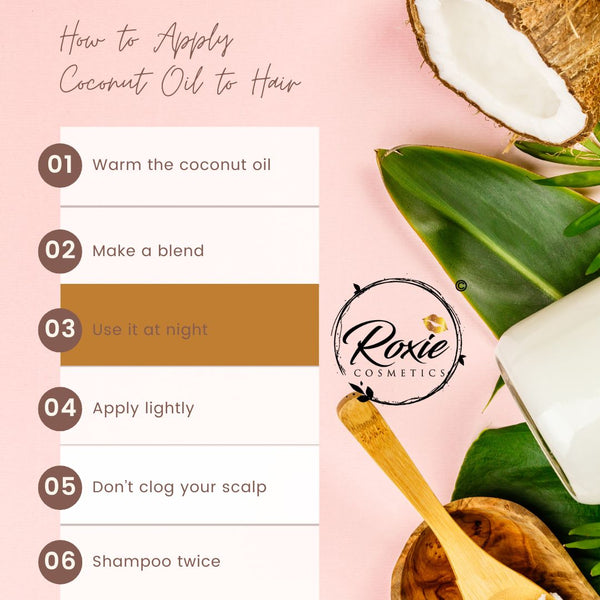
A more convenient time of the day for applying coconut oil is at night. Preparation and the overall procedure of masking coconut oil can consume a lot of time. It is advantageous to let the natural oils sit on the hair and scalp for a longer time, at least 30 minutes, increasing its efficacy. Some people even leave it on while they sleep at night and then rinse it the day after. Coconut oil has this moisturising action that transforms dull hair back to life. Treating the hair overnight allows for its antibacterial and antifungal properties giving ample time to combat these hair problems. Leaving the coconut oil overnight is not recommended for people with already oily or curly hair. The increased concentrations of fat and protein found in coconut extracts may somehow bring damage to these types of hair when exposed for long hours.
4. Apply lightly
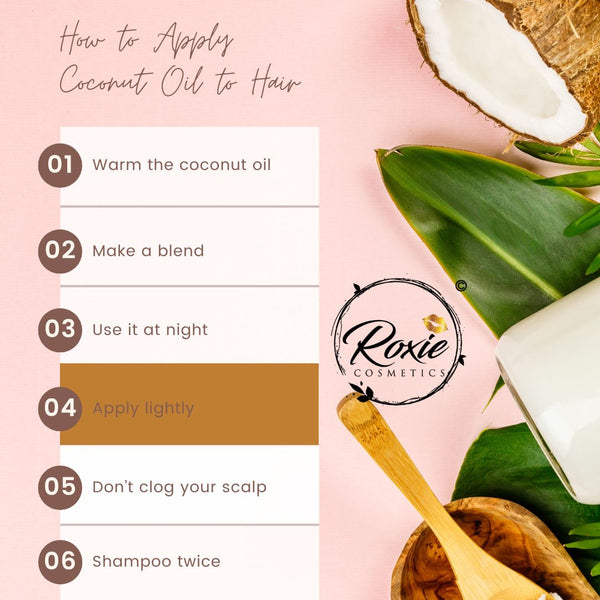
Before application, ensure the hair has been thoroughly washed with shampoos and water. A teaspoon of coconut is an ideal amount for shorter hair. Increase the quantity of coconut oil for much longer hair. Spread the coconut oil lightly over the hair and massage them using the fingers through the scalp area. Using coconut oil as hair oil should be applied on slightly damped hair. One could also use a gentle brush to evenly distribute coconut oil in the hair without using the hands. Gently massaging the hair brings out the natural oil and helps incorporate the components of the coconut oil effectively from the roots to the tips of the hair.
5. Don’t clog your scalp
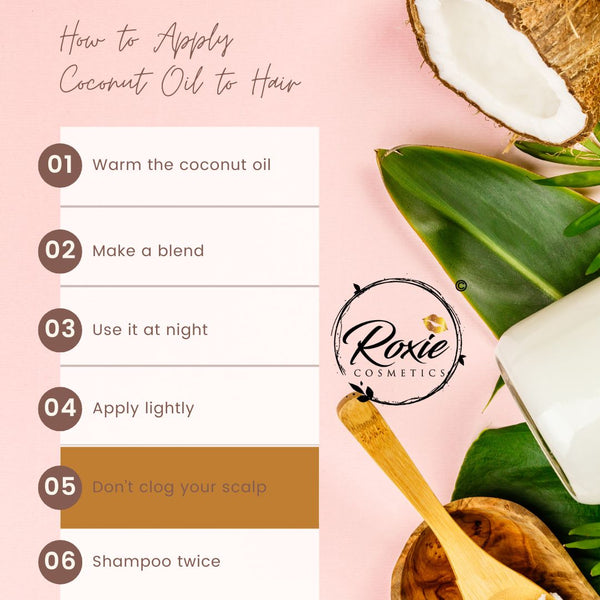
Over application of coconut oil may clog the pores on one’s scalp. Coconut oil has a natural fat content that must be regulated when applied. People with naturally oily hair should use minimal amounts of coconut oil hair treatment as this could exacerbate the hair's oil build-up. Coconut oil helps reduce fungal infections like dandruff, but in worst cases should avoid using coconut oil. It is ideal to have heavily dandruff hair treated first before using coconut oil, as this would clog the pores even more. Blocking the scalp could increase irritation and decrease absorption of the essential nutrients found in coconut oils. A small amount of coconut oil can go a long way and is recommended for beginners.
6. Shampoo twice
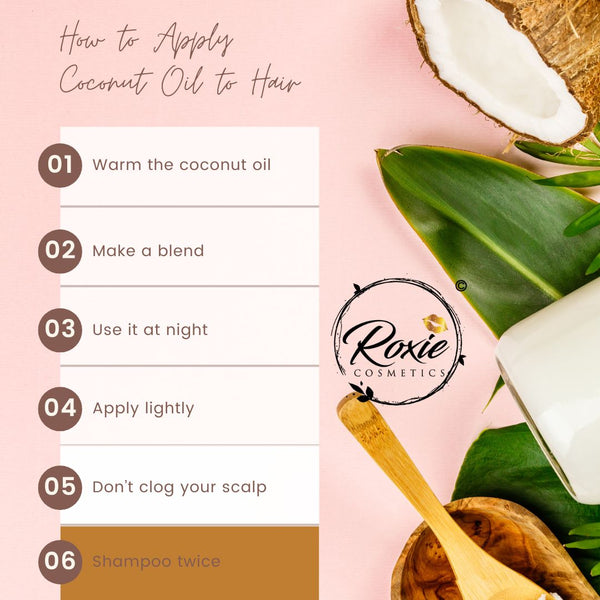
Rinsing off the coconut oil from the hair with shampoo is ideal for washing them off thoroughly. Gentle and organic shampoos are recommended to prevent counteracting and stripping off the natural moisturising properties of coconut oil. Remnants of excess oils on the hair, when left for a longer time, could only clog the pores and irritate the scalp. It is best to rinse and shampoo the hair twice to make sure the oil is rinsed well from the tips to the roots of the hair. Massage the hair using bare hands, gets through the scalp, and remove the coconut oil solution on the most inaccessible parts of the hair.
What to do before applying Coconut oil to hair?
One should evaluate their hair type to see if coconut oil is appropriate. Heavily dandruff hair is discouraged as adding oil to the hair could further clog the pores. Oily hair types are recommended to use minimal amounts of coconut oil to prevent further oil build-up. If coconut oil is okay for use, wash the hair thoroughly using mild shampoos. This would eliminate any dirt and excess sebum on the hair's scalp that would interfere with the absorption of the coconut oil. Using coconut oil as a hair mask requires drying the hair before application. Coconut hair oil, in contrast, is applied to slightly damped hair. Some commercially bought coconut oil is in solid form due to the fat content; this needs to be heated up to liquefy.
What are the benefits of coconut oil to hair?
The natural source of coconut oil is known to have several benefits for the hair. Some may wonder what the benefits of using coconut oil in your hair are? A properly applied amount of coconut oil can be a source of essential nutrients that helps nourish the hair. It has unique ingredients that can resolve common hair problems like dandruff, inflammation, and parasitic infestation.
Listed below are the benefits of coconut oil to the hair.
What are the risks of using coconut oil on hair?
The organic properties of coconut oil pose little to no risk for people with normal hair. Most of its disadvantages are the discomfort of the naturally greasy texture when applied to the hair. People with already naturally oily hair and worst cases of dandruff pose a higher risk when using coconut oil. The Pros & Cons of Using Coconut Oil on Hair can only be answered when personally tested.
Listed below are the risks of using coconut oil on hair.
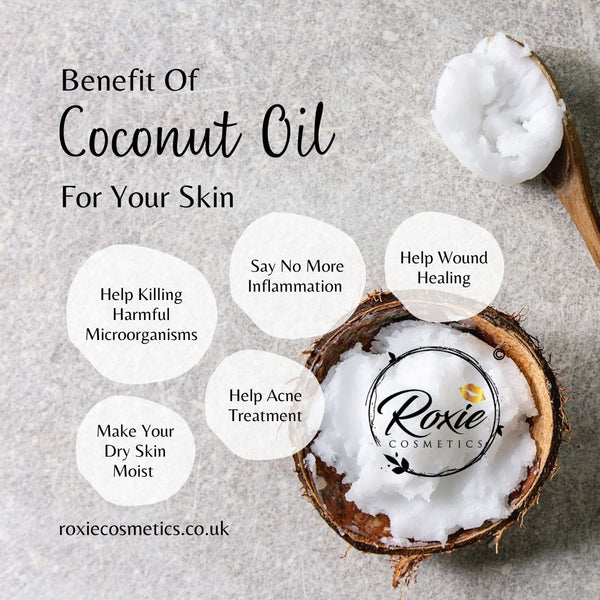
What are the best products of Coconut oil for hair?
The popularity of coconut oil as a hair treatment or nourishing product has resulted in a lucrative development in the market. Several brands offer coconut oil as a primary ingredient in addressing common hair problems. Some are infused with other ingredients to increase their efficacy and potency. The top three out of the 13 Best Coconut Oil-Based Products for Every Hair Type are available in the market.
Listed below are three of the best products of Coconut Oil for the hair.
Is coconut oil suitable for curly hair?
Yes, coconut oil can be suitable for curly hair. The main component found in coconut oil, lauric acid, seeps into the layers of the hair and scalp. It reduces the chances of accumulating oil on top of curly hair. Coconut oil provides a more effective moisturising power than other natural hair treatment products. Curly hair tends to tangle and dry out over time, making coconut oil an essential product to improve its appearance and nourishment. An effective way of using coconut oil for curly hair is to ensure every strand is evenly applied. Leave it on the hair for at least 20 minutes and rinse it after with warm water. Do this between two or three times a week to see visible results.
Does coconut oil promote hair thickness and growth?
Yes, coconut oil promotes hair thickness and growth with its potent ingredients. It contains fatty acids like lauric acid and essential vitamins nourishing hair. The components found in coconut go deep into the hair cuticles that improve the absorption capability of the hair. It further prevents the loss of protein that causes breakage and thinning of the hairline. Virgin coconut oil is best recommended for hair growth and thickness as they are unadulterated and made without harmful chemicals. One reason for the hair's thinning is a fungal infection. The apparent presence of dandruff is addressed by the natural antifungal properties of coconut oil. Solving the problem of dandruff strengthens the hair and scalp, promoting better growth and thickness.

